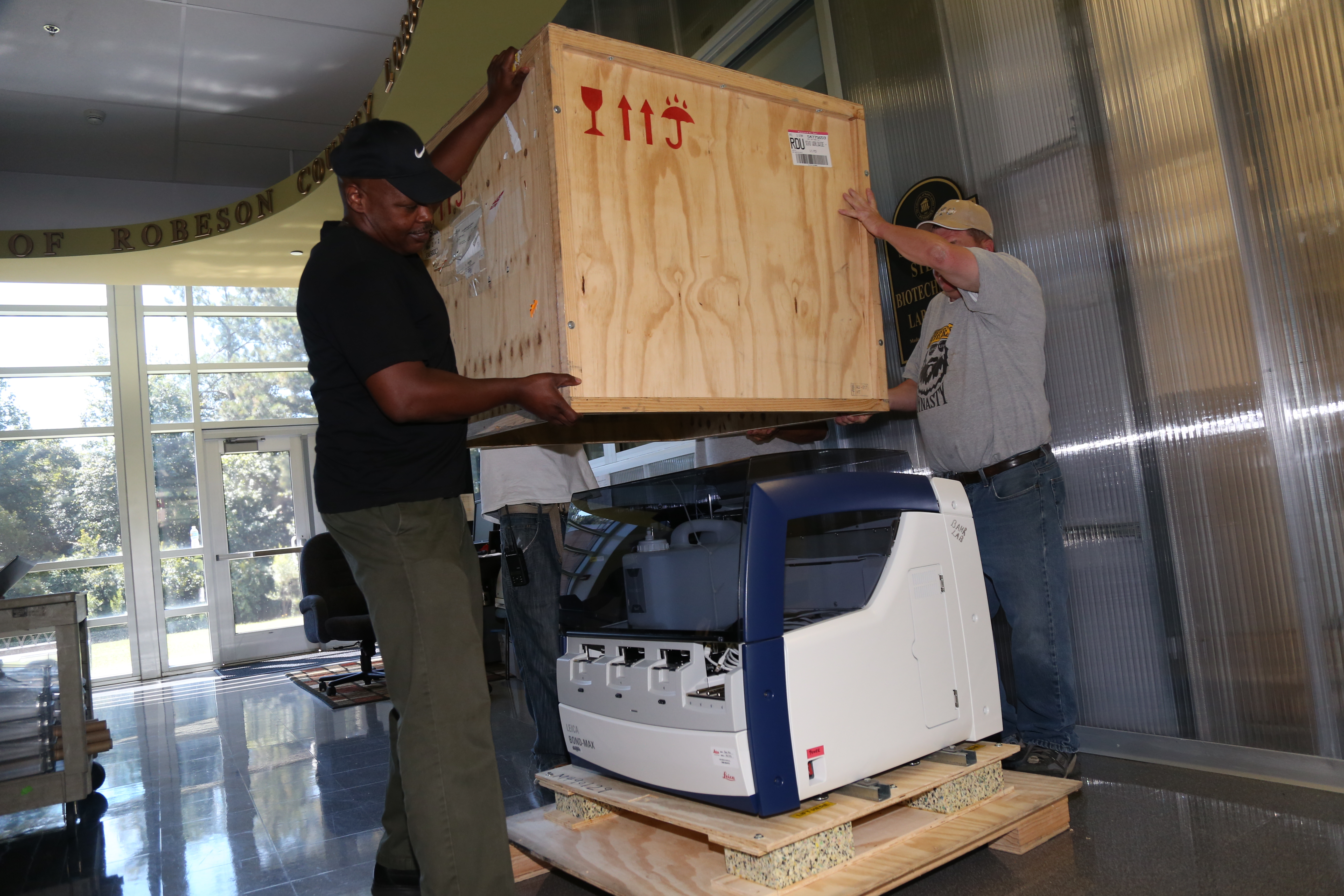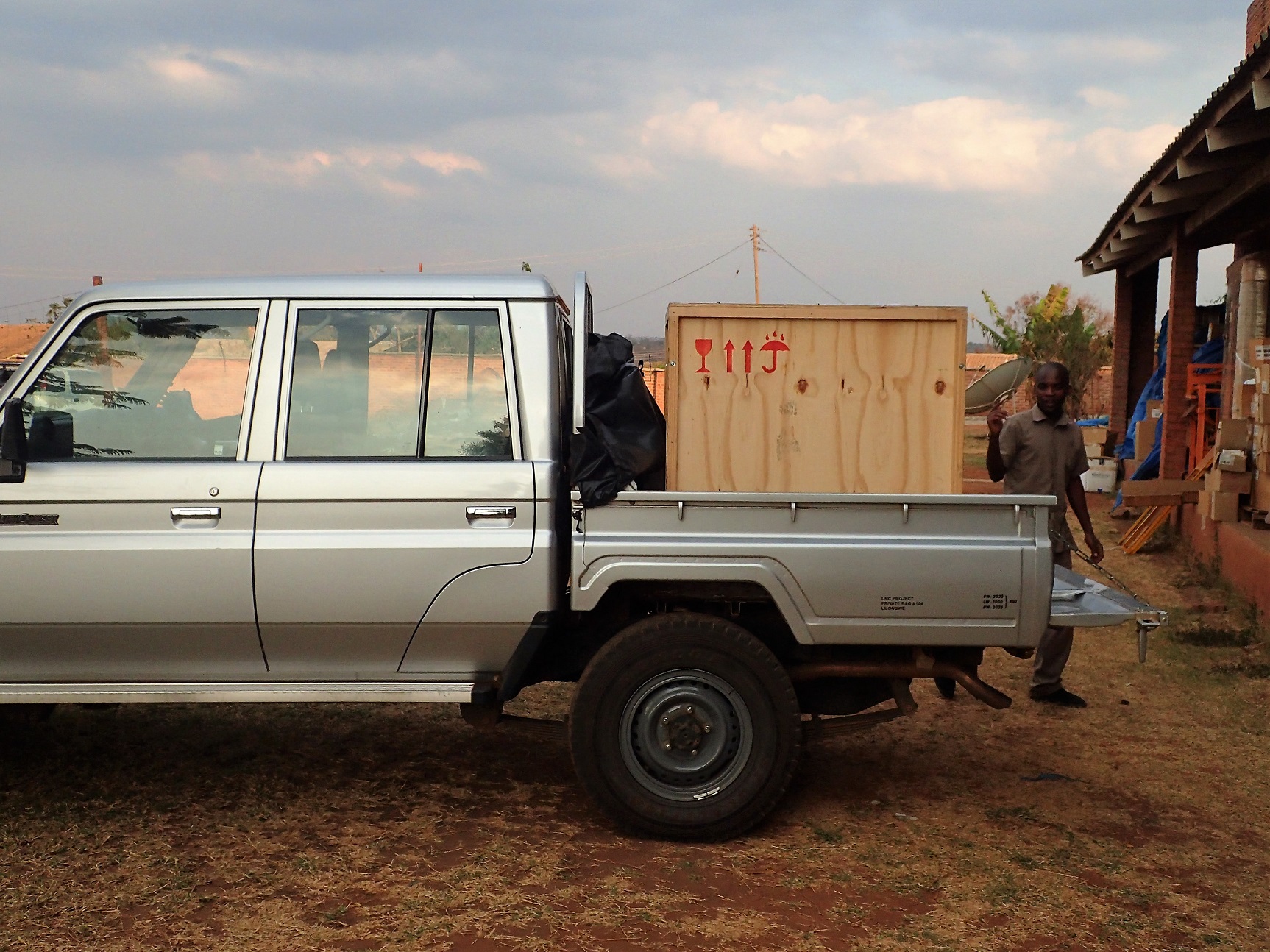A donation of pathology equipment between two schools in the University of North Carolina system will save lives and improve lab operations in Malawi.


A donation of pathology equipment between two schools in the University of North Carolina (UNC) system will save lives and improve lab operations in Malawi.
UNC-Pembroke sent a Leica Bond Max Machine for Immunohistochemistry (IHC) and In Situ Hybridization (ISH) to UNC-Chapel Hill’s site in Lilongwe, Malawi. These particular instruments will allow the laboratory at UNC Project-Malawi to get more detailed information about the tumors that are diagnosed in patients there. This information improves the accuracy of the diagnoses the pathologists make, which in turn helps to make certain that patients in Malawi are being treated appropriately.
“The impact the donated equipment will have in Malawi is significant,” says Nate Montgomery, MD, PhD, UNC-Chapel Hill Department of Pathology and Laboratory Medicine. “The stains performed on these instruments are part of the standard-of-care here in the United States, but there is only a very limited capacity to do them in Malawi. The instrument donated by UNC-Pembroke changes that. This gift will help bring an important tool to a place with far too few resources.”
The Leica machine provides automated staining, which will allow UNC Project-Malawi’s lab technicians to process more specimens.
“Neither the pathology lab nor immunohistochemistry existed in Lilongwe until UNC Chapel Hill introduced them in 2012, and immunohistochemistry has now become a routine part of lab operations,” says Satish Gopal, MD, MPH, UNC Project-Malawi Cancer Program Director. “The automated stainer from UNC-Pembroke will allow us to process even more patient specimens with higher efficiency, while freeing up our technicians to do many other vital lab functions. This is essential in a setting where the per capita health care workforce is orders of magnitude smaller than the US. To handle the overwhelming clinical volume with limited trained staff requires high levels of efficiency, and the new instrument will be critical in this regard.”
The equipment donation was born out of a collaboration between Ben Bahr, PhD, William C. Friday Distinguished Professor of Molecular Biology and Biochemistry at UNC-Pembroke, and Stephanie Montgomery, DVM, PhD, Assistant Professor of Pathology and Laboratory Medicine at UNC-Chapel Hill. The pair was working together on the pathology of Alzheimer’s disease when Bahr mentioned his team did not use the Leica machine very often. Months later, Montgomery learned that UNC-Project-Malawi could benefit from this technology and she contacted Bahr.
“I think it is important that we want to make sure this machine is being utilized for the best operation to help people,” says Bahr. “It is very exciting to be part of this worldwide effort and help people on the other side of the planet.”
